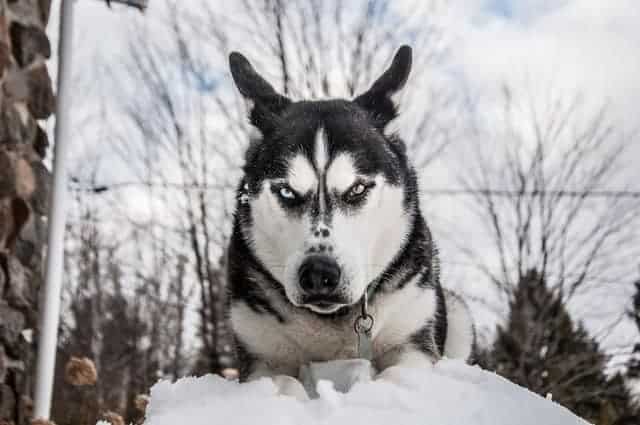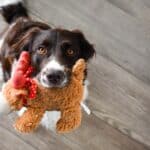
While most of them do, not all dogs move their tails with ease. Some dogs are grumpy and suffer from “bad mood”. This bad temper may be due to illnesses that cause discomfort or pain. The first step should be to eliminate any health problems. Later, we will see if the problem is due to fear, insecurity, territoriality, food or owners.
Among the factors that can affect is the behavior of us owners towards our pet. If we do not allow anyone to approach or caress them, if we do not take them for a walk and do not play with them, we are giving rise to a grumpy character.
Care for grumpy dogs
A dog that is prone to aggression can moderate its behavior with rehabilitation. If the behavior is due to something he doesn’t like or is afraid of, we will need to make them understand that this will not harm them or pose a threat to them. If it has this attitude towards a human, we will gradually help them socialize.
You need to know the body language of grumpy dogs and teach them to socialize with others of its kind. Their growl is also a way of communicating between members of the pack, indicating possession and a desire for defense.
In any case, the solution will never be to isolate the animal from people or animals, rather to try to make them interact more, always under supervision.
Some characteristics of grumpy dogs
- All family members must keep in mind the same rules to be imposed on the dog, in order to achieve the desired goal.
- The space of the animal must be respected. Make them feel safe in their territory. Don’t let other people or animals get close to them, invading their space.
- When an unknown dog approaches our pet, whatever the reason, we must introduce them and allow them to sniff each other.
- Over-protecting our friend is not a good method. To excessively humanize them means to pass on our oddities and insecurities to them.
How do you know if yours is a grumpy dog?
- If you are irritable, you may experience pain.
- Animals that exhibit sudden aggressive behavior when they have never done it before.
- When our friend does not allow itself to touch certain parts of the body, even if he growls and tries to bite and it had never done it before.
- Dogs that go from calm, even lying down, to getting up and trying to bite without reason and without warning, in an unexpected way.
- Bites in the air suddenly.
- Hunched shoulders or overly stiff paws are another indication of a very grumpy dog.
Symptoms of a disease
These signs may indicate that the dog is suffering from pain or discomfort, which may be the cause of the alteration of its behavior. Dysplasia, back problems, contractures and other pains are much more frequent than we think and are not diagnosed or treated, because we don’t realize them. We often just think that our dog has a bad temper or that it is getting old.
There are other signs that aren’t easy to spot. In general, dogs that were previously affectionate and trusted their owners become frightened, disheartened and disobedient even to family members. This behavior could be a symptom that the animal is losing hearing .
Getting to know a grumpy dog

As we have seen, there are dogs that, due to lack of primary socialization, poor management of the leash or, at times, due to the animal’s own character, tend to be more aggressive or show an inadequate character with other dogs and also with people.
Some owners respond to these situations with nervousness and avoid encounters during walks, in order not to run into major problems. However, when there is no real veterinary problem justifying impulsiveness or aggression, we need to focus on working with our dog, so that he can have a life immersed in society.
Among the steps to take it is important to recognize our friend’s body language. It is essential to be able to differentiate too dangerous a game from inappropriate behavior.
When dogs are puppies, it is common to see them growling, barking, open mouths and showing their teeth, without actually touching each other or, if they do, they will rarely get hurt. When they become adults, we try to limit this behavior. In this way, we deny them one of the ways they have to socialize with other dogs.






